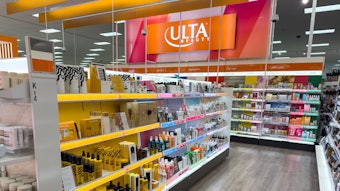Lush Cosmetics announced that, starting in summer 2014, it will be phasing out the entire conventional cocoa butter supply chain, replacing it with fair trade organic cocoa butter from the Dominican Republic. The switch is one Lush has been looking to make for several reasons:
- the organic movement that has become so popular and is one Lush agrees with to offer as many products free of pesticides and chemicals;
- the cost of cocoa butter has gone up significantly, so the different in cost between conventional and organic is getting closer, making it more accessible to companies that make frequent purchases;
- and for Lush, developing cocoa sites around the world to purchase beans from directly will ensure traceability and in turn will positivity affect the local communities.
Conventional cocoa butter, for the most part, is sourced from West Africa, and much of it is not grown in a way that’s completely traceable as its sold at terminal markets. Also, for the last 10 years there has been stories of indentured and child labor on cocoa farms in west Africa. Due to the fact that Lush was able to find a supplier that could meet the cocoa butter need and deliver fair trade organic cocoa butter rather than conventional, the switch, while it took time, was a no-brainer.
Lush will be sourcing cocoa butter from cooperative farms in the Dominican Republic, which have strict regulations against child labor. This is only an intermediary step in the cocoa butter supply chain strategy. The company’s long-term vision is to contract beans directly from sustainable projects funded by Lush. By purchasing beans directly from these projects, it will allow Lush to contribute to the economic development and environmental renewal of regions for which organic and fair trade certifications are not practical or relevant.










